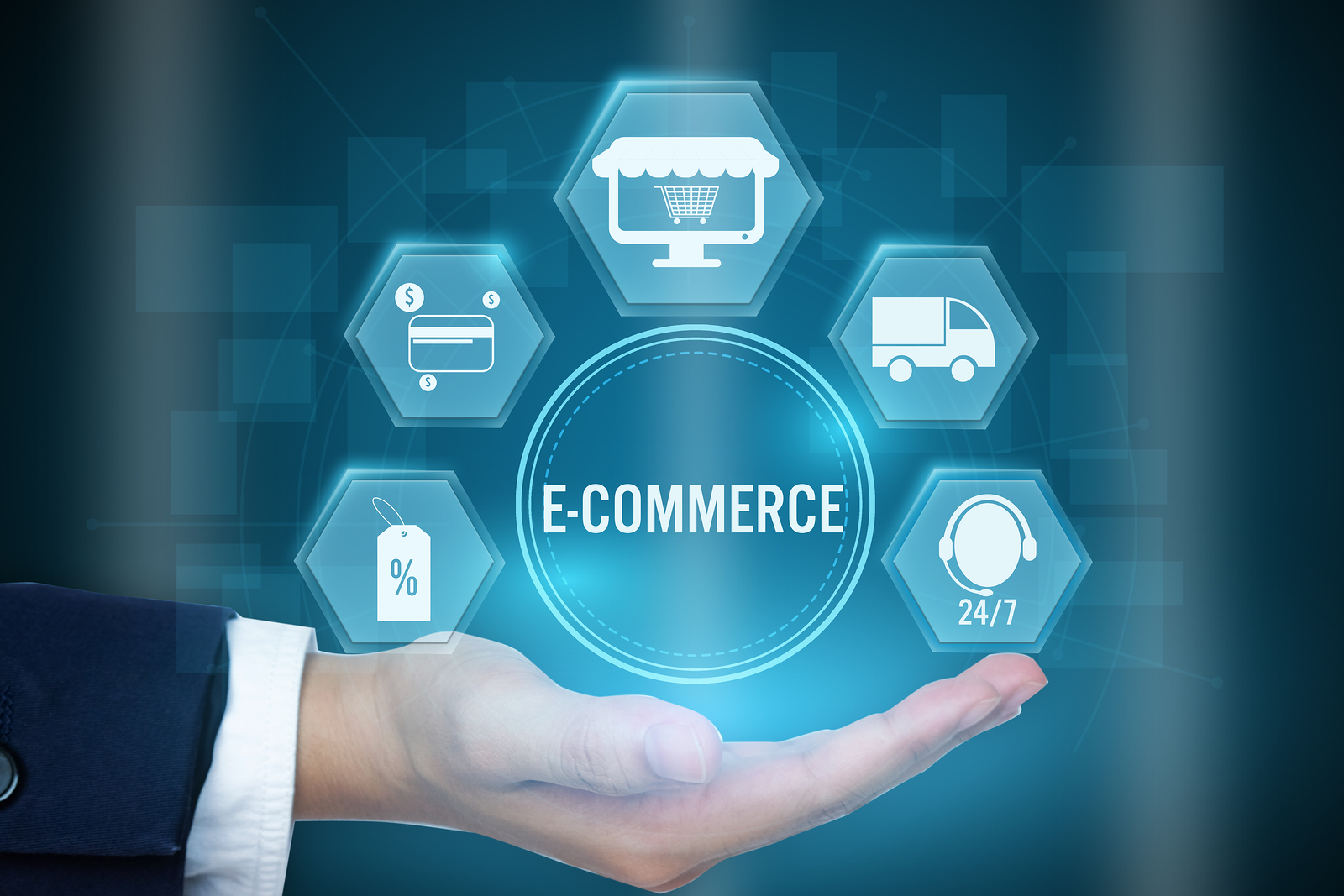In an increasingly digital world, using technology has become a crucial factor for the success and growth of any business. Whether you’re a new entrepreneur or running an established company, the strategic use of tech tools can improve operational efficiency, boost productivity, and even open up new market opportunities. Digital transformation is no longer optional; it’s a necessity to stay competitive and relevant in a dynamic market.
Learn how technology can be used to boost your business. From leveraging automation software to utilizing data for strategic decision-making, we’ll explore how various tech solutions can transform your company and drive results.
1. Process automation to enhance efficiency

Process automation is one of the most effective ways to use technology to drive your business. Automating repetitive and routine tasks allows you and your team to focus on more strategic activities, like developing new products or services.
1.1. Marketing automation tools
Marketing automation tools enable companies to create personalized campaigns and automate tasks such as email sending, audience segmentation, and lead tracking. Platforms like Mailchimp, HubSpot, and ActiveCampaign are widely used to streamline the marketing process and ensure that the right messages reach the target audience at the right time.
Advantages of marketing automation:
- Time and resource savings.
- Increased efficiency in lead follow-up.
- Large-scale personalization.
1.2. CRM: Customer relationship management
CRM (Customer Relationship Management) is an essential tool for efficiently managing customer relationships. Software like Salesforce, Zoho CRM, and Pipedrive help organize customer information, track interactions, and manage the sales pipeline. This facilitates personalized service and creates more effective strategies to foster customer loyalty.
Benefits of CRM:
- Centralized customer information.
- Improved customer experience.
- Increased efficiency for sales and service teams.
2. Cloud computing: data access and flexibility

Cloud computing has revolutionized how businesses store and access data. Solutions like Google Cloud, Microsoft Azure, and Amazon Web Services (AWS) enable companies of all sizes to store information securely and scalably, while providing access to these data from anywhere.
2.1. Cloud storage
The cloud offers a secure and efficient way to store important files and documents, allowing real-time collaboration among teams. Cloud storage is also highly scalable, meaning you can increase or decrease capacity as needed for your business.
Key advantages:
- Remote data access.
- Cost savings on physical infrastructure.
- Enhanced team collaboration.
2.2. Cloud-based software
In addition to storage, many business software today operates in the cloud, allowing teams to work remotely and collaboratively. Tools like Slack, Trello, and Asana facilitate project management and team communication, even when team members are located in different parts of the world.
Benefits of cloud-based software:
- More efficient collaborative work.
- Real-time access to information and updates.
- Integration with other tech tools.
3. Big data and data analysis

In today’s competitive landscape, data-driven decision-making is crucial for success. Using Big Data and data analytics tools allows companies to collect, store, and analyze large volumes of data to identify trends, understand customer behavior, and optimize operations.
3.1. Business intelligence (BI)
Business Intelligence (BI) tools like Power BI, Tableau, and Google Data Studio are essential for turning raw data into actionable insights. They help create detailed reports and graphical visualizations, enabling managers to make better-informed decisions and identify growth opportunities.
Advantages of BI:
- Better decision-making.
- Identification of market patterns and trends.
- Reduced business risks.
3.2. Predictive analytics
Predictive analytics is an advanced data analysis method that uses algorithms and machine learning techniques to predict future behaviors. This technology can be used in areas such as sales forecasting, inventory optimization, and even fraud prevention.
Applications of predictive analytics:
- Product demand forecasting.
- Identifying customer behaviors.
- Optimizing marketing campaigns.
4. Digital marketing and e-commerce

Technology also plays a vital role in digital marketing and e-commerce, which are essential to increasing brand visibility and online sales. Strategically using digital platforms allows companies to reach new audiences and scale their sales.
4.1. SEO (Search engine optimization)
SEO is one of the main digital marketing strategies aimed at improving a website’s ranking on search engines like Google. By optimizing content for SEO, you increase the chances of being found by customers when they search for products or services related to your business.
SEO tips:
- Use relevant keywords on your website.
- Create quality, up-to-date content.
- Optimize site loading speed and mobile navigation.
4.2. Digital advertising
In addition to SEO, investing in digital advertising is an effective way to boost traffic and conversions. Platforms like Google Ads and Facebook Ads allow precise audience targeting, displaying ads to the right people at the right time.
Advantages of digital advertising:
- Precise targeting by interests, location, and behavior.
- Flexibility in ad budget.
- Ability to measure results in real time.
4.3. E-commerce and online platforms
For companies that sell products, e-commerce is an excellent way to scale sales. Platforms like Shopify, WooCommerce, and Magento allow you to quickly and easily set up online stores, integrating payment functionality, inventory management, and digital marketing.
Benefits of e-commerce:
- Global customer reach.
- 24/7 sales availability.
- Integration with logistics and delivery systems.
5. Artificial intelligence and customer service automation

Artificial intelligence (AI) is transforming the way companies communicate with customers and automate tasks. AI can be used to create chatbots that answer frequently asked questions or automate internal processes, saving time and resources.
5.1. Chatbots and customer service
Chatbots are automated programs that use AI to interact with customers in real time, providing quick and personalized responses. They are widely used in e-commerce, customer service, and marketing, and can significantly reduce customer wait times.
Advantages of chatbots:
- 24/7 availability to serve customers.
- Cost savings on human customer service.
- Improved customer experience.
5.2. AI in user experience personalization
Personalization is one of the biggest differentiators AI brings to the business world. Companies like Amazon and Netflix use algorithms to offer personalized recommendations based on previous user behavior, increasing sales and engagement.
Examples of personalization:
- Product recommendations based on past purchases.
- Content suggestions based on user preferences.
- Personalized offers sent by email or messages.
6. Cybersecurity and data protection

With increased digitalization, cyber threats have become a growing concern for businesses of all sizes. Protecting your company’s and customers’ data is essential to maintaining trust and ensuring compliance with data protection laws, such as Brazil’s LGPD (General Data Protection Law).
6.1. Implementation of security systems
Using cybersecurity technologies like firewalls, VPNs, and data encryption is crucial for protecting information against attacks and data breaches. Investing in robust security solutions helps mitigate risks and prevent financial losses from fraud or hacking.
Cybersecurity tips:
- Implement strong password policies and two-factor authentication.
- Keep regular backups of important data.
- Monitor access to sensitive information and restrict permissions.
6.2. Compliance with LGPD
The LGPD requires companies to protect customers’ personal data and provide transparency on how it is used. Ensuring compliance with the law is essential to avoid fines and maintain customer trust.
Best practices for compliance:
- Collect only the data necessary for operations.
- Give customers the option to review and delete their data.
- Implement clear privacy and data protection policies.
Technology offers countless opportunities to boost your business, whether through process automation, data analysis, personalized service, or strengthening your online presence. By adopting the right tools and integrating them strategically, you can improve operational efficiency, increase competitiveness, and deliver a better experience to your customers.
Digital transformation is an ongoing process, and companies that quickly adapt to these changes have a better chance of thriving in an increasingly competitive market.
Frequently asked questions (FAQ)
1. How can process automation help my business?
Process automation saves time by eliminating repetitive tasks, allowing your team to focus on more strategic activities, which boosts productivity and efficiency.
2. What is CRM, and why is it important for my company?
CRM is a tool that helps manage customer relationships, organizing information and interactions to improve service and increase loyalty.
3. What are the main advantages of cloud computing?
Cloud computing allows for secure and scalable data storage and access, as well as facilitating team collaboration while saving on physical infrastructure.
4. How can digital marketing boost my business?
Digital marketing increases brand visibility, improves engagement with your target audience, and generates qualified leads through SEO, digital advertising, and social media.
5. Why is cybersecurity essential for my business?
Cybersecurity protects your company’s and customers’ data against cyberattacks, ensuring compliance with laws like LGPD and preventing financial losses.




